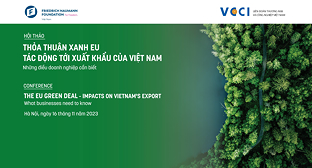Dispute Settlement DS580: India — Measures Concerning Sugar and Sugarcane
01/03/2019 09:43
India — Measures Concerning Sugar and Sugarcane
|
Short title: |
India — Sugar and Sugarcane (Australia) |
|
Complainant: |
Australia |
|
Respondent: |
India |
|
Third Parties (original proceedings): |
Brazil; Canada; China; Colombia; Costa Rica; El Salvador; European Union; Guatemala; Honduras; Indonesia; Japan; Panama; Russian Federation; Thailand; United States |
|
Agreements cited: |
Art. 3.2, 3.3, 6.3, 7.2(b), 8, 9.1, 10, 10.1, 18.2, 18.3 Agriculture Art. 3, 25 Subsidies and Countervailing Measures (SCM) Art. XVI GATT 1994 |
|
Agreements cited: |
Art. 3.3, 8, 9.1, 10.1 Agriculture Art. XVI GATT 1994 Art. 3, 18.2, 18.3, 25, 27 Subsidies and Countervailing Measures (SCM) |
|
Consultations requested: |
1 March 2019 |
|
Panel requested: |
11 July 2019 |
|
Panel established: |
15 August 2019 |
|
Panel composed: |
28 October 2019 |
|
Panel report circulated: |
14 December 2021 |
Summary of the dispute to date
The summary below was up-to-date at 27 January 2022
Consultations
Complaint by Australia (See also DS579 and DS581)
On 27 February 2019, Australia requested consultations with India concerning support allegedly provided by India in favour of producers of sugarcane and sugar (domestic support measures), as well as all export subsidies that India allegedly provides for sugar and sugarcane (export subsidy measures).
Australia claimed that the domestic support measures appear to be inconsistent with:
- Articles 3.2, 6.3 and 7.2(b) of the Agreement on Agriculture; and
- Article XVI of the GATT.
Australia claimed that the export subsidy measures appear to be inconsistent with:
- Articles 3.3, 8, 9.1, 10.1, 18.2, 18.3 of the Agreement on Agriculture;
- Articles 3 and 25 of the SCM Agreement; and
- Article XVI of the GATT.
Australia submitted, together with its consultations request, a statement of available evidence pursuant to Article 4.2 of the SCM Agreement.
On 11 March 2019, Guatemala requested to join the consultations. On 12 March 2019, Brazil, Costa Rica and the European Union requested to join the consultations. On 14 March 2019, Thailand requested to join the consultations.
Panel and Appellate Body proceedings
On 11 July 2019, Australia requested the establishment of a Panel. At its meeting on 22 July 2019, the DSB deferred the establishment of a panel.
At its meeting on 15 August 2019, the DSB established a panel. Brazil, Canada, China, Colombia, Costa Rica, El Salvador, the European Union, Guatemala, Honduras, Indonesia, Japan, Panama, the Russian Federation, Thailand and the United States reserved their third-party rights.
On 16 October 2019, Australia requested the Director-General to compose the panel. On 28 October 2019, the Director-General composed the panel.
On 27 April 2020, the Chair of the panels in DS579, DS580 and DS581 informed the DSB that, due to the complex procedural and factual nature of the disputes and in light of the harmonized timetables adopted to that date, the panels estimated to issue their final reports to the parties not before the second quarter of 2021. The Chair apprised the DSB that the report would be available to the public once it was circulated to the Members in all three official languages, and that the date of circulation depends on completion of translation.
On 14 December 2021, the panel report was circulated to Members.
On 24 December 2021, India notified the DSB of its decision to appeal to the Appellate Body certain issues of law and legal interpretations in the panel report. On 11 January 2022, Australia informed the DSB that it had taken note of India's notification of its appeal and that, given the current non-operational situation of the Appellate Body, it considered that all subsequent procedural deadlines set out in the Appellate Body's Working Procedures were suspended. Australia indicated that when the Appellate Body resumes its functions, it should set the schedule for this appeal. Australia indicated its intention to file a written submission and make an oral statement in accordance with the schedule to be determined by the Appellate Body. Australia noted its disagreement with India's appeal.
Các tin khác
- Dispute Settlement DS616: European Union — Countervailing and Anti-Dumping Duties on Stainless Steel Products from Indonesia (24/01/2023)
- Dispute Settlement DS614: Peru — Anti-dumping and countervailing measures on biodiesel from Argentina (02/09/2022)
- Dispute Settlement DS603: Australia — Anti-Dumping and Countervailing Duty Measures on Certain Products from China (24/06/2021)
- Dispute Settlement DS602: China — Anti-Dumping and Countervailing Duty Measures on Wine from Australia (22/06/2021)
- Dispute Settlement DS600: European Union and certain Member states — Certain measures concerning palm oil and oil palm crop-based biofuels (15/01/2021)
 Home
Home
 About Us
About Us




















